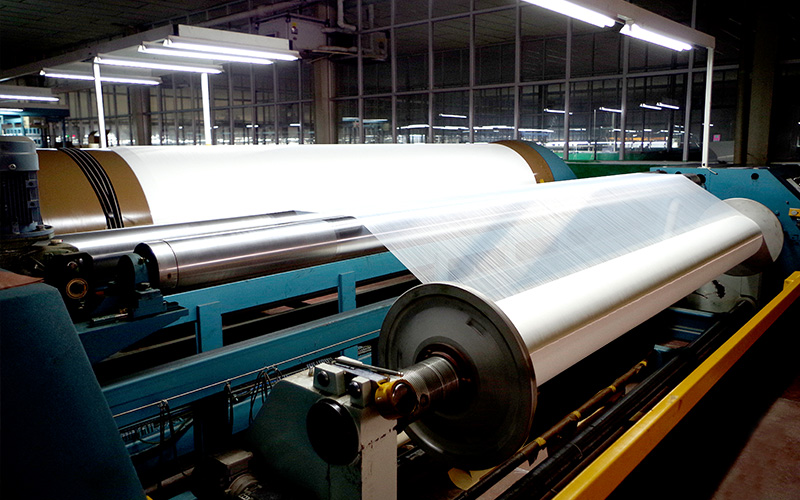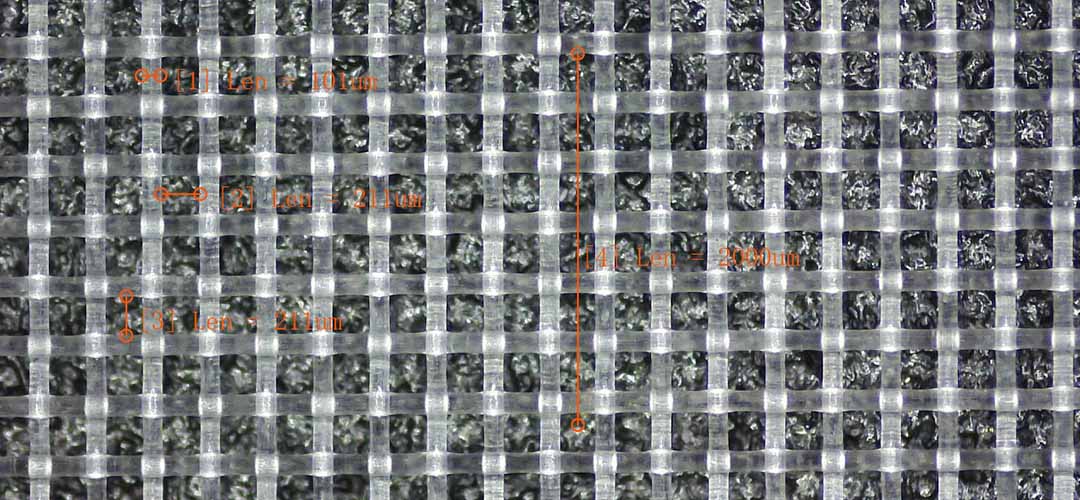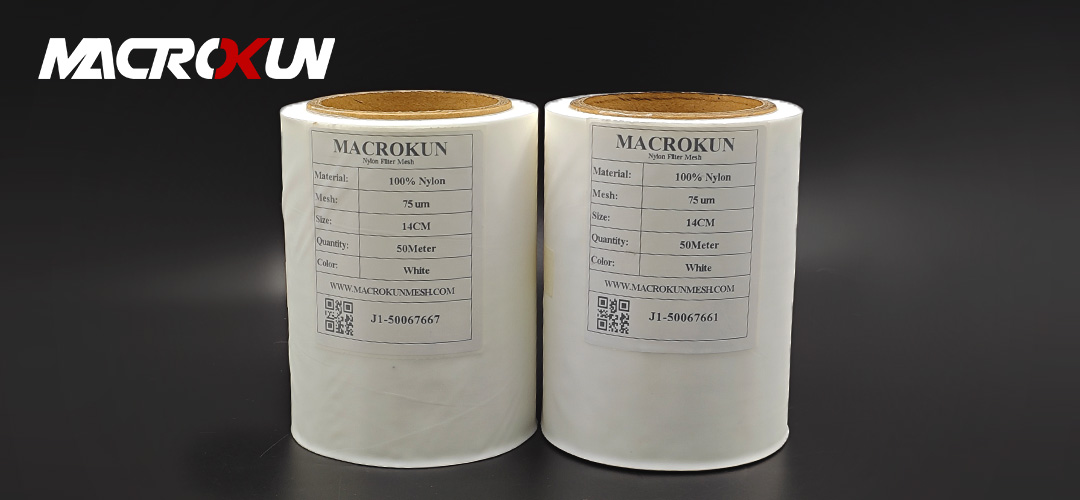When it comes to filtration, choosing the right material for your specific needs is crucial. Nylon micron mesh is a popular choice for many industries due to its durability, flexibility, and efficiency. In this article, we will explore the benefits of using nylon micron mesh for filtration and how to choose the right type for your specific application.
One of the main advantages of nylon micron mesh is its strength and durability. Nylon is a synthetic material that is known for its high tensile strength, making it ideal for applications where the mesh will be subjected to high pressure or abrasive materials. This means that nylon micron mesh can withstand the rigors of filtration processes without tearing or breaking, ensuring a longer lifespan and more efficient filtration.
In addition to its strength, nylon micron mesh is also highly flexible. This flexibility allows the mesh to conform to the shape of the filtration system, ensuring a tight seal and preventing any bypass of particles. This is especially important in applications where a high level of filtration efficiency is required, such as in the pharmaceutical or food and beverage industries.
Another benefit of using nylon micron mesh for filtration is its efficiency. Nylon mesh is available in a wide range of micron sizes, allowing for precise control over the size of particles that are filtered out. This means that you can choose a mesh size that is tailored to your specific needs, whether you are filtering out large particles or tiny contaminants. This level of customization ensures that you get the best possible filtration results for your application.
When choosing the right nylon micron mesh for your specific needs, there are a few factors to consider. The first is the micron size of the mesh. The micron size refers to the size of the openings in the mesh, with smaller micron sizes indicating a finer mesh that can filter out smaller particles. It is important to choose a micron size that is appropriate for the size of particles you are trying to filter out, as using a mesh that is too large will result in ineffective filtration.
Another factor to consider when choosing nylon micron mesh is the weave type. Nylon mesh is available in a variety of weave types, including plain weave, twill weave, and Dutch weave. Each weave type has its own unique characteristics, such as increased strength or improved filtration efficiency. It is important to choose a weave type that is best suited to your specific application to ensure optimal filtration performance.
In conclusion, nylon micron mesh is a versatile and efficient material for filtration applications. Its strength, flexibility, and efficiency make it an ideal choice for a wide range of industries. By choosing the right micron size and weave type for your specific needs, you can ensure that you get the best possible filtration results for your application.
When it comes to selecting the right nylon micron mesh for your specific needs, there are several factors to consider. Nylon micron mesh is a versatile material that is commonly used in a variety of industries, including food and beverage, pharmaceutical, and chemical processing. It is known for its durability, flexibility, and resistance to chemicals and abrasion. However, not all nylon micron mesh is created equal, and it is important to choose the right type for your particular application.

One of the first factors to consider when selecting nylon micron mesh is the micron rating. The micron rating refers to the size of the openings in the mesh, and it is an important consideration when determining the level of filtration you need. The lower the micron rating, the smaller the openings in the mesh, and the finer the filtration. If you are looking to filter out very small particles, such as bacteria or viruses, you will need a nylon micron mesh with a low micron rating. On the other hand, if you are filtering larger particles, such as sand or debris, a nylon micron mesh with a higher micron rating may be sufficient.
Another important factor to consider when selecting nylon micron mesh is the mesh count. The mesh count refers to the number of openings per linear inch in the mesh. A higher mesh count indicates a finer mesh with smaller openings, while a lower mesh count indicates a coarser mesh with larger openings. The mesh count is closely related to the micron rating, as a higher mesh count generally corresponds to a lower micron rating. When choosing a nylon micron mesh, it is important to consider both the micron rating and the mesh count to ensure that you are getting the right level of filtration for your needs.

In addition to the micron rating and mesh count, it is also important to consider the material of the nylon micron mesh. Nylon micron mesh is available in a variety of materials, including nylon 6 and nylon 6/6. Nylon 6 is a general-purpose material that is suitable for most applications, while nylon 6/6 is a more durable material that is resistant to higher temperatures and chemicals. The material of the nylon micron mesh will depend on the specific requirements of your application, so it is important to choose a material that is compatible with the substances you will be filtering.

When selecting nylon micron mesh, it is also important to consider the weave of the mesh. Nylon micron mesh is available in a variety of weave patterns, including plain weave, twill weave, and Dutch weave. The weave of the mesh can affect its strength, flexibility, and filtration capabilities. For example, a plain weave mesh is strong and durable, while a Dutch weave mesh is more rigid and has a higher level of filtration. The weave of the mesh will depend on the specific requirements of your application, so it is important to choose a weave pattern that is suitable for your needs.
In conclusion, choosing the right nylon micron mesh for your specific needs requires careful consideration of several factors, including the micron rating, mesh count, material, and weave of the mesh. By taking these factors into account, you can ensure that you are selecting a nylon micron mesh that is well-suited to your application and will provide the level of filtration you require. Whether you are filtering out small particles in a pharmaceutical process or removing debris in a water treatment plant, choosing the right nylon micron mesh is essential for achieving optimal results.
When it comes to choosing the right nylon micron mesh for your specific needs, it’s important to understand the different types of mesh available on the market. Nylon micron mesh is a versatile material that is commonly used in a variety of industries, including food and beverage, pharmaceuticals, and chemical processing. The key to selecting the right mesh for your application lies in understanding the various options and their unique characteristics.
One of the most common types of nylon micron mesh is monofilament mesh. This type of mesh is made from a single strand of nylon, which results in a smooth surface that is ideal for applications where a high level of clarity is required. Monofilament mesh is known for its excellent strength and durability, making it a popular choice for applications that require a mesh that can withstand heavy use.
Another type of nylon micron mesh is multifilament mesh. Unlike monofilament mesh, multifilament mesh is made from multiple strands of nylon that are twisted together. This results in a mesh that is more flexible and has a higher flow rate, making it ideal for applications where a high level of filtration is required. Multifilament mesh is also known for its excellent resistance to abrasion, making it a great choice for applications that involve abrasive materials.
In addition to monofilament and multifilament mesh, there are also specialty meshes available that are designed for specific applications. For example, there are meshes that are specifically designed for use in the food and beverage industry, where hygiene and cleanliness are of utmost importance. These meshes are often treated with antimicrobial coatings to prevent the growth of bacteria and other harmful microorganisms.
| Series | Mesh Size (/cm) |
Mesh Size (/inch) |
Thread Dia (um) |
Mesh Opening (um) |
Thickness (um) |
Gross Weight (g/m2) |
| NL4/1950 | 4 | 10 | 550 | 1950 | 1100 | 307 |
| NL5/1500 | 5 | 13 | 500 | 1500 | 1000 | 318 |
| NL6/1267 | 6 | 15 | 400 | 1267 | 800 | 244 |
| NL7/1079 | 7 | 18 | 350 | 1079 | 700 | 218 |
| NL8/900 | 8 | 20 | 350 | 900 | 700 | 249 |
| NL9/861 | 9 | 23 | 250 | 861 | 500 | 143 |
| NL9/811 | 9 | 23 | 300 | 811 | 600 | 206 |
| NL10/750 | 10 | 25 | 250 | 750 | 500 | 159 |
| NL10/700 | 10 | 25 | 300 | 700 | 600 | 229 |
| NL12/583 | 12 | 30 | 250 | 583 | 500 | 191 |
| NL12/533 | 12 | 30 | 300 | 533 | 600 | 274 |
| NL14/514 | 14 | 36 | 200 | 514 | 340 | 142 |
| NL16/425 | 16 | 40 | 200 | 425 | 340 | 160 |
| NL20/350 | 20 | 50 | 150 | 350 | 255 | 113 |
| NL20/300 | 20 | 50 | 200 | 300 | 340 | 200 |
| NL24/267 | 24 | 60 | 150 | 267 | 255 | 135 |
| NL28/237 | 28 | 70 | 120 | 237 | 204 | 101 |
| NL30/213 | 30 | 76 | 120 | 213 | 204 | 110 |
| NL32/213 | 32 | 80 | 100 | 213 | 170 | 80 |
| NL36/178 | 36 | 90 | 100 | 178 | 170 | 90 |
| NL40/150 | 40 | 100 | 100 | 150 | 170 | 100 |
| NL43/153 | 43 | 110 | 80 | 153 | 136 | 70 |
| NL48/128 | 48 | 120 | 80 | 128 | 136 | 77 |
| NL56/119 | 56 | 140 | 60 | 119 | 102 | 50 |
| NL64/96 | 64 | 160 | 60 | 96 | 102 | 58 |
| NL72/89 | 72 | 180 | 50 | 89 | 85 | 45 |
| NL80/75 | 80 | 200 | 50 | 75 | 85 | 50 |
| NL100/57 | 100 | 250 | 43 | 57 | 73 | 46 |
| NL110/48 | 110 | 280 | 43 | 48 | 73 | 52 |
| NL120/48 | 120 | 300 | 35 | 48 | 60 | 37 |
| NL120/40 | 120 | 300 | 43 | 40 | 73 | 55 |
| NL130/42 | 130 | 330 | 35 | 42 | 60 | 40 |
| NL130/34 | 130 | 330 | 43 | 34 | 73 | 61 |
| NL140/36 | 140 | 350 | 35 | 36 | 60 | 43 |
| NL157/25 | 157 | 400 | 43 | 25 | 73 | 74 |
| NL180/20 | 180 | 450 | 39 | 20 | 66 | 68 |
| NL200/15 | 200 | 500 | 39 | 15 | 66 | 76 |
| NL220/10 | 220 | 550 | 39 | 10 | 66 | 84 |
| NL240/5 | 240 | 600 | 39 | 5 | 66 | 91 |
There are also meshes that are designed for use in the pharmaceutical industry, where a high level of filtration is required to ensure the purity of the final product. These meshes are often made from materials that are resistant to chemicals and solvents, making them ideal for use in applications where harsh chemicals are present.
When selecting the right nylon micron mesh for your specific needs, it’s important to consider the mesh size and pore size. Mesh size refers to the number of openings per inch in the mesh, while pore size refers to the size of the individual openings. The mesh size and pore size will determine the level of filtration that the mesh can provide, so it’s important to choose a mesh that is appropriate for your specific application.
In conclusion, choosing the right nylon micron mesh for your specific needs requires an understanding of the different types of mesh available and their unique characteristics. By considering factors such as mesh size, pore size, and application-specific requirements, you can select a mesh that will provide the level of filtration and durability that you need. Whether you’re in the food and beverage, pharmaceutical, or chemical processing industry, there is a nylon micron mesh that is perfect for your application.
When it comes to selecting the right nylon micron mesh for your specific needs, there are several factors to consider. One of the most important considerations is the micron size of the mesh. The micron size refers to the size of the openings in the mesh, which determines the size of particles that can pass through. Choosing the right micron size is crucial for ensuring that the mesh effectively filters out unwanted particles while allowing desired particles to pass through.
To determine the right micron size for your application, you first need to consider the size of the particles you are trying to filter. If you are filtering large particles, you will need a mesh with larger openings, while filtering smaller particles will require a mesh with smaller openings. It is important to note that the micron size of the mesh is not the only factor to consider when selecting a mesh for your application. Other factors, such as the material of the mesh and the weave pattern, can also impact the effectiveness of the mesh in filtering particles.
In addition to considering the size of the particles you are filtering, you should also take into account the flow rate of the material passing through the mesh. A mesh with smaller openings will restrict the flow rate more than a mesh with larger openings. If you need a high flow rate, you may need to choose a mesh with larger openings, even if it means sacrificing some level of filtration.
Another factor to consider when selecting a nylon micron mesh is the material of the mesh itself. Nylon is a popular choice for micron mesh due to its durability and resistance to chemicals and abrasion. However, there are different types of nylon mesh available, each with its own unique properties. For example, monofilament nylon mesh is known for its high strength and durability, while multifilament nylon mesh is more flexible and has a higher flow rate.
When choosing a nylon micron mesh, it is important to consider the specific requirements of your application. If you are filtering abrasive materials, you may need a mesh with a higher abrasion resistance. If you are filtering chemicals, you may need a mesh that is resistant to corrosion. By understanding the specific needs of your application, you can select a nylon micron mesh that will provide the best performance and longevity.
In conclusion, choosing the right nylon micron mesh for your specific needs requires careful consideration of several factors, including the micron size of the mesh, the size of the particles you are filtering, the flow rate of the material, and the material of the mesh itself. By taking these factors into account and understanding the specific requirements of your application, you can select a nylon micron mesh that will effectively filter out unwanted particles while allowing desired particles to pass through.
Pre: The Flexibility and Strength of Elastic Mesh in Sportswear
Next: Key Considerations When You Buy Nylon Mesh for Filtration Needs

MACROKUN has established long-term and stable cooperative relations with many transportation companies such as China Post, DHL, FEDEX, USPS, UPS, etc. Of course, MACROKUN can also provide air and sea transportation. The powerful logistics system enables all MACROKUN'S Printing Mesh, Filter Mesh and Filter Bags and so on to be easily and efficiently transported to any place. For quotes and inquiries, please email our sales team.





